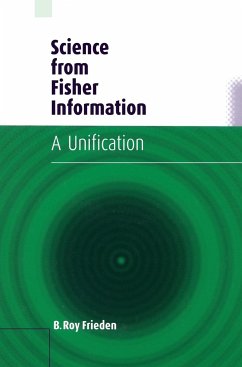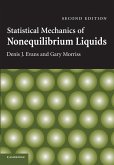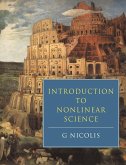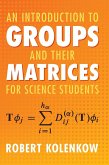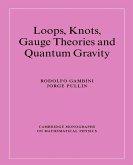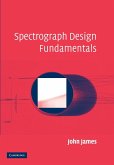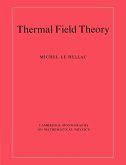Short description/annotation
New edition of the hugely successful Physics from Fisher Information.
Main description
This book develops and applies an analytical approach to deriving the probability laws of science in general. It is called 'extreme physical information' or EPI. EPI is an expression of the imperfection of observation: Owing to random interaction of a subject with its observer and other possible disturbances, its measurement contains less Fisher information than does the subject per se. Moreover, the information loss is an extreme value. An EPI output may alternatively be viewed as the payoff of a zero-sum game of information acquisition between the observer and a 'demon' in subject space. EPI derives, Escher-like, the very probability law that gave rise to the measurement. In applications, EPI is used to derive both existing and new analytical relations governing probability laws of physics, genetics, cancer growth, ecology and economics. This unified approach will be fascinating to students and those who seek a new mathematical tool of research.
Table of contents:
0. Introduction; 1. What is Fisher information(?)33;; 2. Fisher information in a vector world; 3. Extreme physical information; 4. Derivation of relativistic quantum mechanics; 5. Classical electrodynamics; 6. The Einstein field equation of general relativity; 7. Classical statistical physics; 8. Power spectral 1/f noise; 9. Physical constants and the 1/x probability law; 10. Constrained-likelihood quantum measurement theory; 11. Research topics; 12. EPI and entangled realities: the EPR-Bohm experiment; 13. Econophysics; 14. Growth and transport processes; 15. Cancer growth.
New edition of the hugely successful Physics from Fisher Information.
Main description
This book develops and applies an analytical approach to deriving the probability laws of science in general. It is called 'extreme physical information' or EPI. EPI is an expression of the imperfection of observation: Owing to random interaction of a subject with its observer and other possible disturbances, its measurement contains less Fisher information than does the subject per se. Moreover, the information loss is an extreme value. An EPI output may alternatively be viewed as the payoff of a zero-sum game of information acquisition between the observer and a 'demon' in subject space. EPI derives, Escher-like, the very probability law that gave rise to the measurement. In applications, EPI is used to derive both existing and new analytical relations governing probability laws of physics, genetics, cancer growth, ecology and economics. This unified approach will be fascinating to students and those who seek a new mathematical tool of research.
Table of contents:
0. Introduction; 1. What is Fisher information(?)33;; 2. Fisher information in a vector world; 3. Extreme physical information; 4. Derivation of relativistic quantum mechanics; 5. Classical electrodynamics; 6. The Einstein field equation of general relativity; 7. Classical statistical physics; 8. Power spectral 1/f noise; 9. Physical constants and the 1/x probability law; 10. Constrained-likelihood quantum measurement theory; 11. Research topics; 12. EPI and entangled realities: the EPR-Bohm experiment; 13. Econophysics; 14. Growth and transport processes; 15. Cancer growth.

